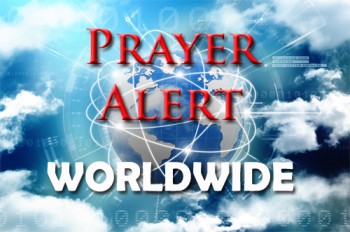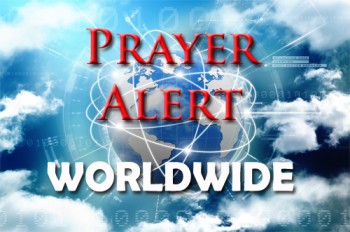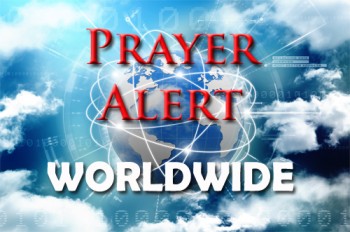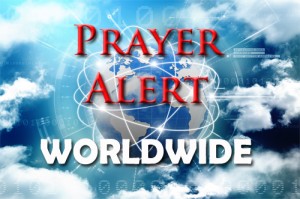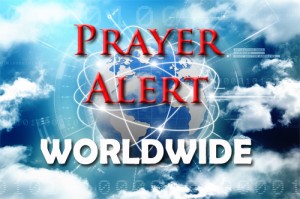Displaying items by tag: Chibok girls
Two more former Chibok schoolgirls found
Boko Haram abducted 276 Christian girls from Chibok School in 2014. Girls were whipped and forced into marriage. Some experienced mock executions for refusing to become Muslims. Yana and Rejoice, now young women with children of their own, were among the captives and were recently recovered with their children by the Nigerian Army. Yana Pogu has four children, two boys and twin girls. Rejoice Sanki has two children. They are undergoing medical examinations before being passed over to the care of the Borno government.
Two Chibok girls achieve degrees
Two of the 276 Chibok schoolgirls who were abducted by Boko Haram extremists in 2014 have completed their master’s degrees in the USA. Lydia Pogu completed a masters in Human Services Administration, and Joy Bishara a masters in Social Work. ‘Boko Haram told us that school is a taboo for women and warned us that if we went back to school, they would come for us,’ said Lydia. ‘I thought all my dreams had changed, but God had a different plan for me.’
Nigeria: ‘Bring back Chibok girls’
Attendees at the Bring Back our Girls conference heard that twenty parents have now died before being reunited with their daughters. ‘I’m Chibok girl Dad. Bring Back Our Girls Now’, read the white letters on one man’s red T-shirt. On 15 April seven years ago, he woke to hear his daughter had been abducted from her school. He has not seen her since and has no idea if she is alive, but amidst his anguish he pleads, ‘Our people are being killed on a weekly basis’. 112 Chibok girls remain unaccounted for. The dad pleaded, ‘ Why has the government abandoned us? I appeal to Governor Zulum to bring peace to our land’. ‘No amount of intimidation will stop us demanding the girls’ rights’, said another parent. There have been three attacks this week in Damasak town, 200 miles north of Chibok, this time by an IS group which has splintered away from Boko Haram.
Nigeria: Chibok girls and Boko Haram
In 2014, militants stormed a boarding school in Chibok and kidnapped 276 girls. Dozens escaped almost immediately; another girl was found in May 2016. After government/Boko Haram negotiations, 21 more girls were released, then 82 were freed in a prisoner swap in 2017. Since then, nothing had been heard of the remaining captives, until Halima Ali Maiyanga called her father to say she had managed to escape on 28 January. ‘She asked me, Is this my daddy? and she started crying. The crying was so much I couldn't hear her very well. I was crying too. I never expected to hear from her again. Our house is full of people rejoicing with us.’ Halima and others are safe and being looked after by the Nigerian army. While we praise God for their escape, please continue to pray for the remaining girls and their families.
Nigeria: five years since Chibok girls taken
Five years ago, 230 girls were abducted in Chibok by Boko Haram. Parents whose daughters have not yet returned say it still feels like a ‘fresh wound’ but refuse to give up hope. Boko Haram set classrooms ablaze and told the girls they were under attack while they pretended to protect them. They herded them into trucks, drove into the forest and subjected them to rape, pregnancy, violence, and death. Those who did not obey militants or refused to renounce their Christian faith were punished severely; there are suggestions that some of them were forced to become Boko Haram fighters and commit murders for the group. 165 of the girls belonged to the Nigerian Church of the Brethren. Pray for parents like Yana, whose daughter has not returned. ‘Any time I speak about Rifkatu, I feel so much pain in my heart’, she said. ‘When she was kidnapped, laughter ceased in my house.’
Nigeria: more schoolgirls abducted
On 25 February, Nigeria's information minister had a meeting with the family members of 110 girls who were abducted a week earlier. The frustrated families had criticised the government for taking so long to acknowledge the abduction. They presented the minister with a list of names of the missing girls, and complained that officials were being slow to respond. The girls’ fate is not known, but witnesses said the Islamic extremists specifically asked where the girls’ school was located. Some eyewitnesses reported seeing young women taken away at gunpoint. Air Force spokesman Olatokunbo Adesanya said that efforts to locate the girls are being conducted in close liaison with other security forces. It is feared the girls will become brides for Boko Haram extremists. Nigeria's president said no effort will be spared to locate them.
Nigeria: 82 Chibok girls released
On Sunday the Bring Back Our Girls Group (BBOG) applauded the federal government and security agencies on the release of 82 more Chibok girls. Their release was negotiated through the combined efforts of security agencies, the military, the Swiss government, the Red Cross, and local and international NGOs. 21 girls had been set free last October, and the government committed to rescuing the 113 girls who are still captive. A spokesperson for the Young Women Political Forum urged the ministry of women’s affairs and the ministry of health to work together to provide the girls and their parents with adequate psychological counselling. Pray that communities will accept these victims of rape, who are now mothers with babies and no husbands. See also the Prayer Alert world article 3.
Nigeria: Chibok girls - what awaits the ones set free?
The ordeal of being kidnapped by Boko Haram does not end with their release. It is the start of a long struggle back into family and community life. The Chibok ‘children’ who have been freed are now young women. An already fraught transition from adolescence to womanhood has been complicated by their captivity. They will be reunited briefly with families over the coming days. There will be tearful reunions and a mixture of emotions, as both parents and daughters will have changed a great deal over the past three years. Then the young women will go through a process of reintegration or rehabilitation. This is either government care or government custody, depending on the need. Some families support the process;, others are angry that they will not have their daughters back even after they have been released from Boko Haram.


